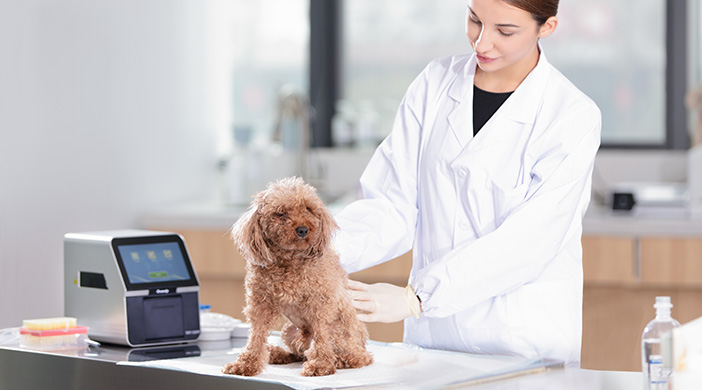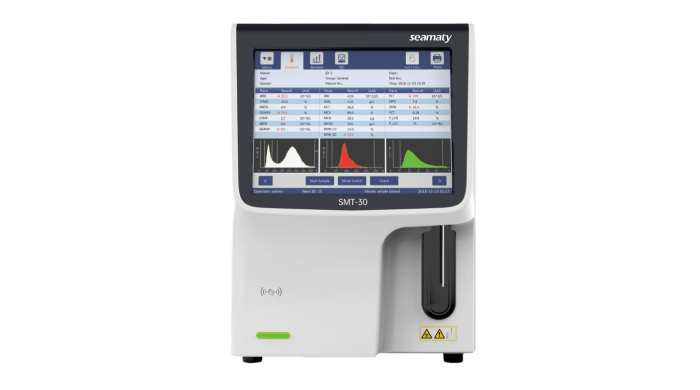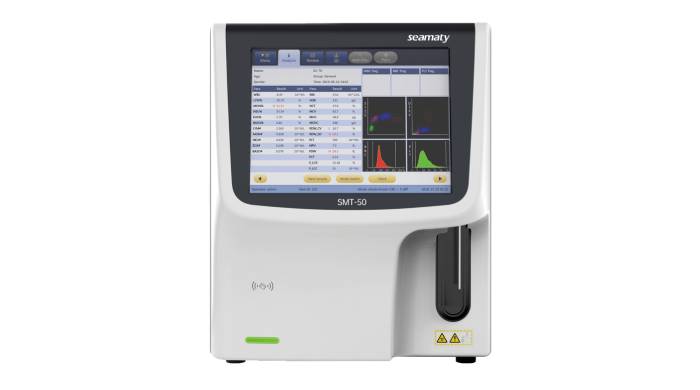Veterinary biochemical testing is the testing of multiple chemical components within a sample. The levels of these chemicals reflect many conditions in various organs of the body. Most veterinary biochemical tests measure blood electrolytes and assist in the diagnosis of liver, kidney and pancreatic disease.
Whole blood is a mixture of blood cells and fluid components. A complete blood count (CBC) is a technical tool to determine the proportion of various cells and to quantify various red blood cells, white blood cells, platelets and hemoglobin. Biochemical tests, on the other hand, focus on analyzing the liquid fraction of the sample after the cellular components have been removed. This liquid fraction is obtained by coagulating whole blood in a test tube and then centrifuging it in a centrifuge. Centrifugation allows the clot to settle to the bottom of the tube while the liquid fraction is on top. The liquid after the clotting component is removed becomes the "serum," the portion used for biochemical testing.
Many veterinarians are able to perform biochemical tests with fewer tests in their own practices. Biochemical tests with more tests are often performed by a local laboratory. There, the lab technician will take a small amount of serum from the initial collection and inject it into a large machine. The machine measures the many chemical components in the tiny serum sample. The results of each test are finally edited and printed on the same form. To make it easier for veterinarians to analyze the data, the table lists the test results along with normal values.
Types of biochemical tests
Because
veterinary biochemistry analyzers are capable of doing many different kinds of tests, there are many types of biochemical tests (e.g., liver tests, electrolyte tests, geriatric animals, preoperative tests), and the choice depends on what items are included in the test type.
A typical veterinary biochemical test includes the following items:Blood glucose, urea nitrogen, creatinine, Ca, Na, K, total protein, albumin, globulin, total bilirubin, alkaline phosphatase, ghrelin, cholesterol
Each of these thirteen tests would cost several hundred dollars if performed individually, but if combined into one test, the price is much more reasonable. Not only does this save money, it also makes it much easier to diagnose diseases with a mix of conditions.
It would be nice if all veterinarians were born diagnostic experts. But the truth is that biochemical testing plays a huge role in veterinary diagnosis. Biochemical tests can point us in the right direction for diagnoses that may not even be within the doctor's initial suspicions. Sometimes veterinarians know what is wrong with a pet based on history and physical examination alone. But in other cases, the veterinarian did biochemistry every two hours for three days and still had no diagnostic clues. Of course even in this latter case, we cannot deny the value of biochemical testing. Sometimes the test results are indeed of little or no use for diagnosis, but these cases are very, very rare.
Conclusion
Biochemical tests provide more information about a specific diagnosis than blood tests that focus on cell composition. The tests listed above can directly assess the health of the liver, kidneys, adrenal glands, immune system, etc. In addition to helping us make a diagnosis, biochemical tests are also useful for determining prognosis (predicting the outcome of the disease). However, in some cases, the diagnosis can only be made based on changes in biochemical indicators over a period of time.
As with blood tests, biochemical tests only reflect the condition of the affected animal at a given moment. The results of the test may change within 24 hours, or even an hour, so veterinarians must consider all the factors that can affect the animal and how they affect the test results.



